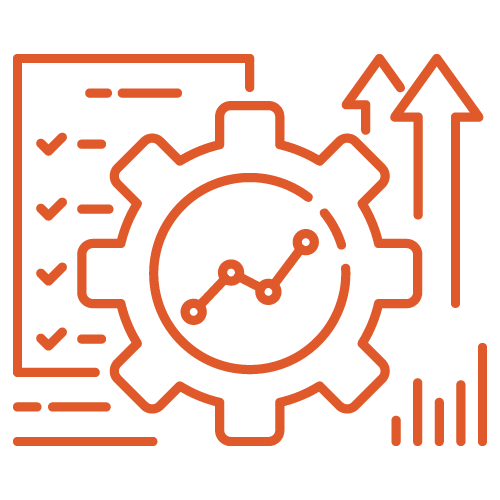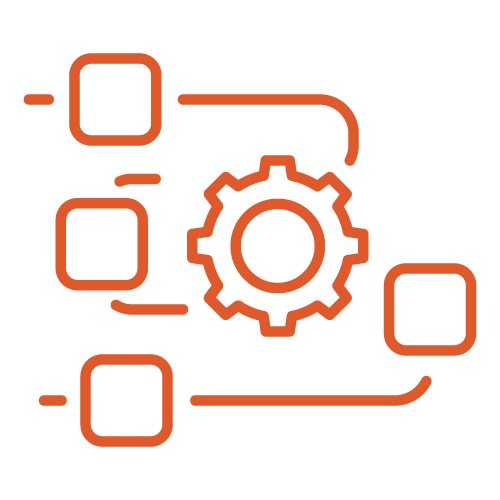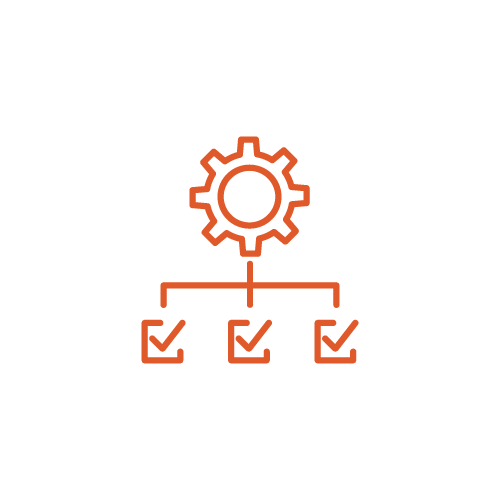Enterprise computing solutions
and services
Stay on top of swiftly evolving developments through analytics, research,
and testing.
Collaborating with enterprises to advance the promise of their technologies
As technological advancements, innovations, and practices evolve, enterprises need to effectively streamline and automate their large-scale, high-performance systems and services to support their critical applications. These systems are designed to be reliable, secure, and capable of managing large amounts of data. We provide our clients with data and research-based technological know-how and support for their enterprise computing needs.

High-quality professional services for your organization
Expand the reach and impact of your enterprise computing services.

Artificial intelligence (AI)
AI is one of the hottest technologies with enormous potential now being integrated across industries. When implemented strategically and conscientiously, AI enterprise solutions can boost business performance, save costs, and increase employee productivity. We can help navigate the intricacies of AI to make work more efficient and cost-effective.

Data and analytics
Data is embedded into every compute decision, interaction, transaction, and process. Employees need to leverage data on a regular basis for their work. This necessitates continuous improvement in performance and the growth of new and improved applications.

Process automation
Automation is drastically shifting the work mechanism across industries. Process automation in enterprise computing can address complex business processes and improve efficiency, accuracy, and scalability. It involves integrating and restructuring resources and leveraging software applications across the enterprise.
Our enterprise computing solutions
Providing strategic use of data and AI to deliver better outcomes for enterprise computing.

Integration across the enterprise
The full potential of AI-powered solutions can be realized by integrating it across the organization. This includes the incorporation of AI into processes and support with strong data management strategies.

Strategic implementation
AI has the potential to change a company’s trajectory. Enterprises that have adopted it as part of their product or business strategy can realize unforeseen gains.

Enterprise business processes
AI can boost productivity and efficiency, enhancing the ability of traditional automation to optimize processes. When enterprises incorporate AI into their workflows, employees can delegate more tasks to technology, freeing up time to innovate and contribute to high-value work.

Data management and privacy
Data management is prioritized and automated for privacy, security, and resiliency. With increased digitization, enterprises are increasingly using data fabric to help address higher levels of diversity, distribution, scale, and complexity in their organizations’ data assets.
Frequently asked questions
What are examples of enterprise computing?
Enterprise computing refers to IT systems and solutions engaged in running the business of large, F1000 companies. These systems typically include many servers, locations, large number of users, and support infrastructure requiring IT expertise.
What are applications of enterprise computing?
Each business segment often uses applications that are unique to their industry. Healthcare companies utilize electronic medical records systems (e.g. EPIC), financial services will focus on banking or trading, telecom provides communication services. Common applications include infrastructure support (the operating system, networking) or specific database support.
Why use enterprise computing?
Enterprise computing has historically been utilized to ensure compliance with regulations, improve security, store large amounts of data, and support many users or customers. Systems or solutions that are less robust or not enterprise-ready might not meet the needs of the business.
What is the role of data analytics in enterprise computing?
Data analytics is crucial for enterprise companies and computing solutions. It can help in improving efficiencies, supporting more customers, securing data, fraud detection, and lead generation.
How does enterprise computing support remote work?
Enterprise computing enables specific software to connect with and manage users that are not located in the same facility. These can include supporting a virtual private network for secure access, collaboration tools, video conferencing, or email access, for example. Enterprise computing solutions focus on security and managing data outside of their building while balancing the user experience so that remote workers can be productive.





